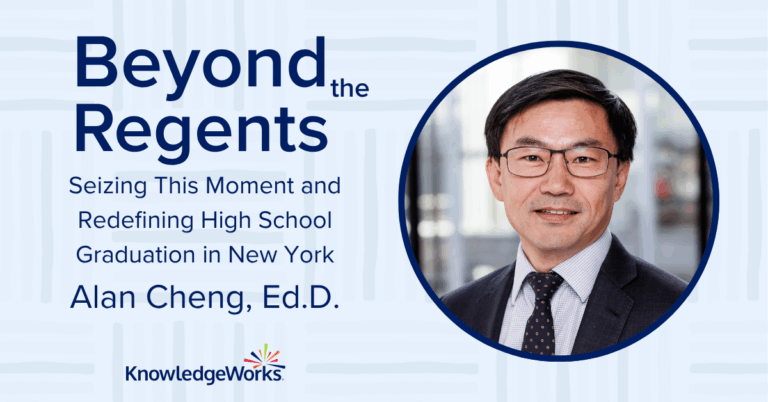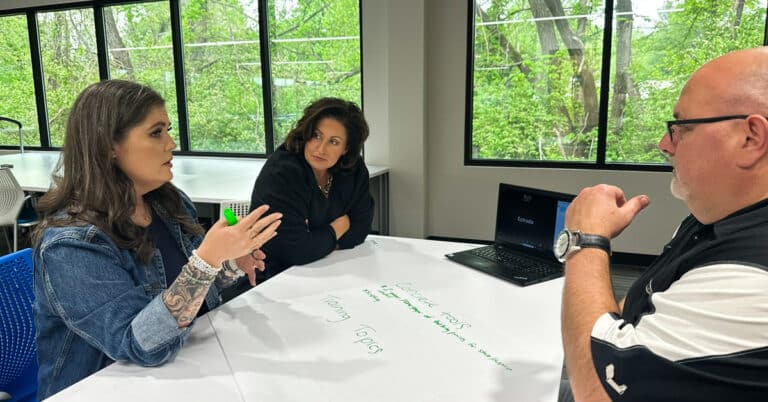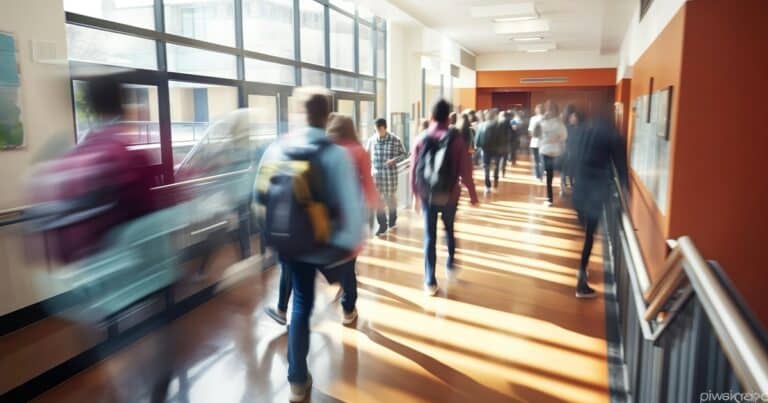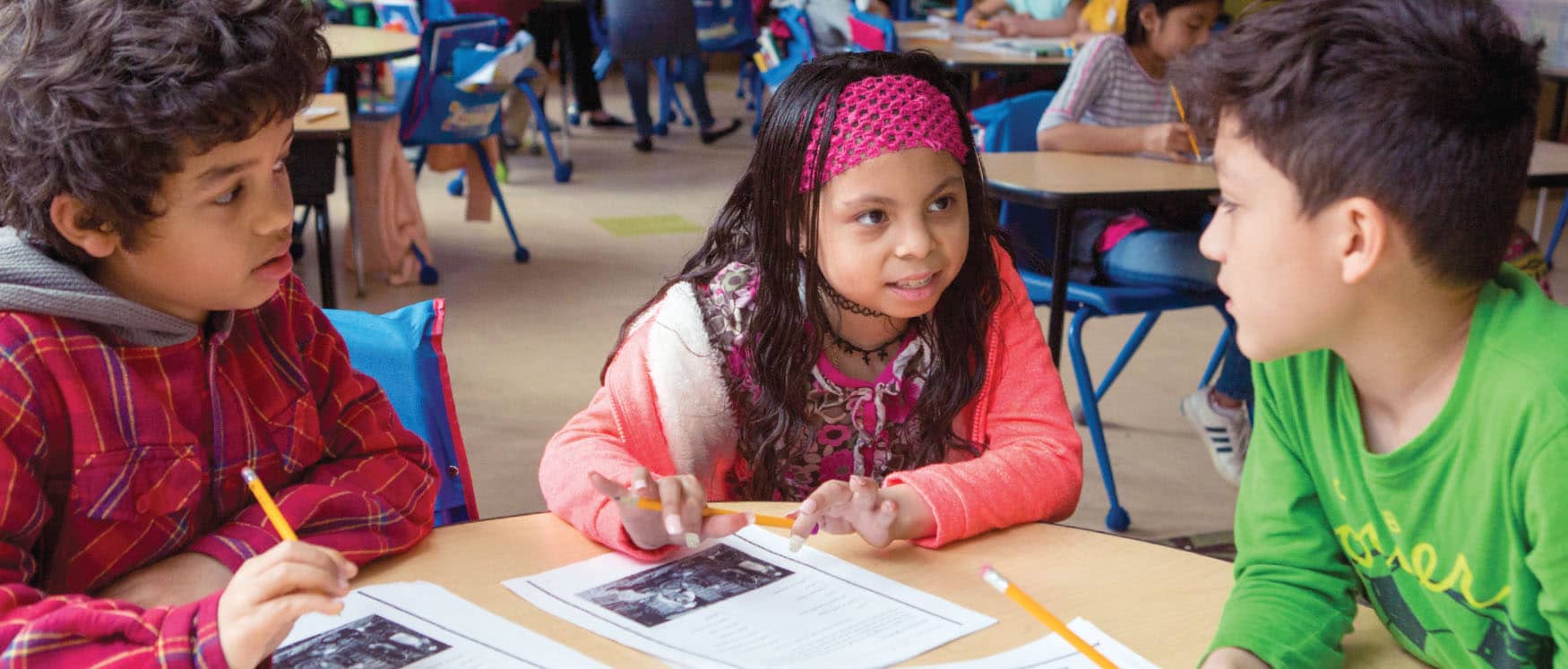
At KnowledgeWorks, our definition of personalized learning is rooted in our belief that all children can learn, should be challenged to take ownership of their learning as individuals and empowered with the academic knowledge and social-emotional skills they need for the future.
What does personalized, competency-based learning mean?
Personalized learning means creating engaging learning experiences customized to each student’s strengths, needs and interests. At KnowledgeWorks, we believe the most effective way to personalize learning is through personalized, competency-based learning.
In a personalized, competency-based learning environment:
- Students daily make important decisions about their learning experiences, how they will create and apply knowledge and how they will demonstrate their learning
- Assessment is a meaningful, positive and empowering learning experience for students that yields timely, relevant and actionable evidence
- Students receive timely, differentiated support based on their individual learning needs
- Students progress based on evidence of mastery or competency, not seat time
- Students learn actively using different pathways and varied pacing
- Strategies to ensure equity are embedded in the culture, structure and pedagogy of schools and education systems
- Rigorous, common expectations for learning are explicit, transparent, measurable and transferable
Source: FullScale
Why choose personalized learning?
Most students in our country experience the same education system their parents experienced though their world looks vastly different. While there may be some accommodation of student interests and learning needs, everyone advances at a similar pace regardless of whether they have mastered what’s been asked of them, or if they need additional time to reach their learning target.
Despite record graduation rates now at 84 percent, a deeper look at post-secondary readiness reveals that graduates of our current education system face significant gaps in knowledge and skills.
GAPS IN THE CURRENT SYSTEM
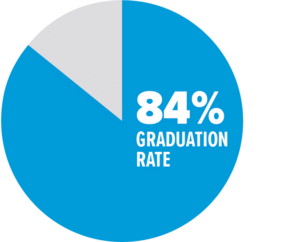
At a record high, 84 percent of public high school students reach graduation, as measured by the adjusted cohort graduation rate (ACGR), according to the National Center for Education Statistics.
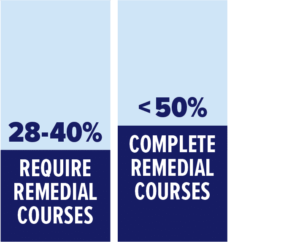
According to the National Conference on State Legislators, 28-40 percent of all first-time undergraduates enroll in at least one remedial course. Less than 50 percent of students complete their remedial courses.
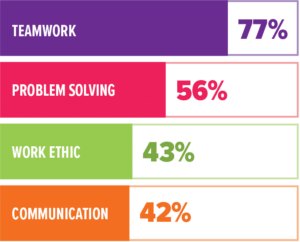
Of the career readiness competencies employers deemed as essential in research from the National Association of Colleges and Employers, they did not rate new graduates as proficient in many.
Rapid change requires a new look at what it means to be college and career ready.
Based on recent research completed by KnowledgeWorks on the skills individuals will need for careers in 2040 and beyond, core social-emotional skills like emotional regulation, empathy and self-knowledge will be critical to help students succeed in a future that looks very different from today. Personalized learning addresses these needs by aligning education today with the needs of tomorrow.
What can educator roles look like in the future to support personalized, competency-based learning?
Photo courtesy of Allison Shelley/The Verbatim Agency for American Education: Images of Teachers and Students in Action.
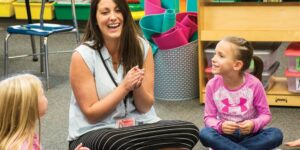 Personalizing Learning for Students and Teachers
Personalizing Learning for Students and Teachers
